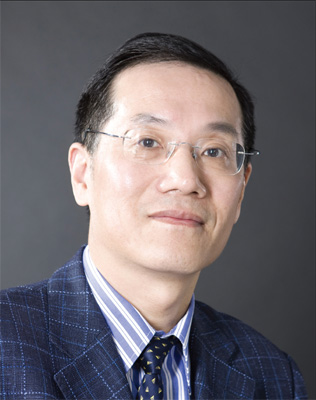Plugging in
Updated: 2010-01-01 07:40
By Tiffany Wong(HK Edition)
|
|||||||
|
Thomas Crampton, Internet marketing stragetist |
Women appear to be bridging the gender gap on the Web, and with many being described as "intense Internet users," they present fertile ground for marketers. Tiffany Wong relates to us this phenomenon in a two-part account.
Hong Kong is among many Asian cities that are hyper-connected to technology. Asian youth are among the fastest growing tech users born into an already established Internet age. How many analog cassette tape players are seen today on the streets of Mongkok? How many multiple phones are purchased not for personal use, but to have a trendy new color available each year? Of these mobile phones, how many of its users have created individualized ringtones from MP3s on a personal computer or have downloaded one from a Web page?
The Hong Kong Internet Project
Jonathan Zhu, a professor in the Department of Media and Communication and a member of the Centre for Communication Research at City University of Hong Kong (CUHK) has conducted research which he describes as "on the diffusion, use and impact of the Internet in Hong Kong and the mainland."
Although his work is currently centered on the "network analysis of online communities," he has previously steered the Hong Kong Internet Project at CUHK since 2000. "With funding from the Hong Kong Research Grants Council and other sources," he has completed ten annual surveys about Internet use in Hong Kong. "We randomly selected 1000-1500 residents, including both users and non-users of the Internet and interviewed them by telephone to find out who was using the Internet and who wasn't...and how the Internet was used for what outcomes."
"Since 2002," he said, "(this project) has become a founding member of another consortium known as Asia-Pacific Internet Research Alliance (APIRA) that consists of governmental research arms, universities and commercial research firms on the mainland, in Japan, South Korea, Taiwan, Hong Kong, Macao and Malaysia."
As these organizations have discovered, not everyone has equal access to the Internet. There is currently a debate about the "digital divide" which describes the phenomenon of a gap between those who have access to information technology and those who do not.
|
Professor Jonathan Zhu |
"As everyone knows," said Zhu, "the young generation in Hong Kong and elsewhere make far heavier usage of the Internet and other new media than the older generation." His survey finds that "95 percent of young people in Hong Kong between six and 34 years of age use the Internet, as compared to 70 percent of middle-aged individuals (35-54) or 30 percent of senior citizens (55-84)." This is the digital divide, which he believes is a gap that is "narrowing in recent years" because of user friendliness and cost reductions in access to technology.
He also noted the number of elderly Hongkongers who began using the Internet almost tripled between 2004 and 2008. The average Hong Kong Internet user is likely to be male, 32 years old, having completed Form 5 (five years of secondary) education, and working as a blue collar or clerical worker.
In other words, "there are obvious differences across generations." Zhu explained that the average "younger user (in Hong Kong) spends five hours or more per week online, much more than members of the older generations. They also are more interested in online communication (e.g., chatting) and entertainment (e.g., music, video, games, etc.). However, they are less likely to buy things online."
Online marketers
These research results make the Internet look like a marketer's dream - its pervasiveness, "viral" results when a trend takes off and its cost effectiveness by simply launching a Facebook page, personal blog or "micro-blogging" on a Twitter account is attractive to 21st century digital marketers.
Thomas Crampton is the Asia-Pacific director of 360 Digital Influence at Ogilvy Public Relations Worldwide. Having switched over recently from journalism to digital marketing, he had 18 years of prior experience as a correspondent, largely with the International Herald Tribune and The New York Times. Now based in Hong Kong, he and his team help conceive, develop and execute strategies in "social media."
Increasing Internet use means advantages for online marketers. According to Crampton, Hong Kong has a "huge population online all the time" with an Internet penetration of about 72 percent of the population located on a small island.
He also indicated that the benefit of having a high penetration of broadband access with the average user having three mobile phones per person - meaning that some individuals have more than three mobile phones - many of which also have Internet access on each mobile phone.
While some believe that the digital divide can occur not only between age groups, but between genders, Crampton disagrees. "There is no gender divide...as Internet penetration increases there is more gender balance," he said, acknowledging that there are differences in the way the Internet is used.
One trend is that of "beauty bloggers", with a large number of them being female netizens based in Hong Kong. These bloggers are a regional phenomenon, said Crampton, as they write about skincare and make-up, while also outdoing their male counterparts in downloading, blogging, file sharing and instant messaging. These young women, said Crampton, are "intense users of the Internet" that are an important demographic for online marketers. By contrast, their young male counterparts in Hong Kong are more likely to play online games than doing anything else.
Practicality
According to Crampton, the key characteristic of Hong Kong Internet use is practicality. He believes that "people are practical and like things done efficiently." In any case, it is difficult to compare Internet use across Asia because each country uses it differently. He cited the fact that "Japan has some unique mobile technology that exists only there and where 90 percent of Internet users access it on a mobile phone."
When conducting research in Japan about the speed with which users can text message on a mobile phone, Crampton described that "one person said 'that's boring' (in response to the survey) and insisted on seeing how fast a text message could be entered with a mobile phone still in his pocket!"
In comparison, he said that in South Korea some people use mobile phones to read and write novels despite the impracticality of small keys and text shown on their stamp-sized screens.
Crampton said he has also noticed that Asia's aging population is seeing a lot of "silver surfers" (50 years and older) nowadays as more and more of the "pensioners" are logging onto the Internet.
"Back in 2007," said Zhu, "we found that 70 percent of young users between ages six and 34 had blogs and 50 percent to 60 percent of them also shared files through peer-to-peer networks. However, only 6 percent of them had ever contributed to Wikipedia (an Web-based collaborative online encyclopedia permitting users to contribute new entries and/or edit exiting ones)."
"Web 2.0, or user-generated content (USG), is still growing fast with innovative content and formats invented almost everyday," Zhu said. "(These Web innovations) happen all the time in neighboring markets such as South Korea, Japan, Taiwan and even the mainland. It's a bit quieter in Hong Kong - there aren't as many successful stories of locally-grown USG here."
Nevertheless, Hong Kong remains one of the most connected cities in the world. As one avid young Internet user puts it, "in places like Hong Kong, no one would be amazed by Internet or smart phones." Spoken like a true member of today's wired generation, this active social media networker remarked, "(it is the) same way as how we don't get excited about turning on a light bulb anymore."
(HK Edition 01/01/2010 page3)

